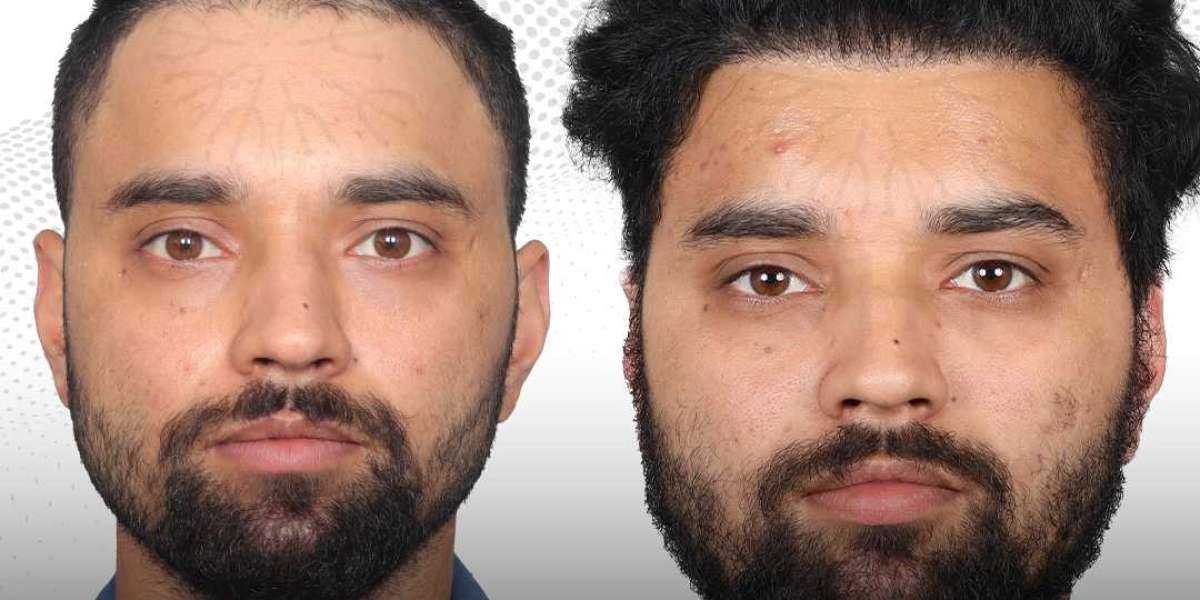Getting a good sleep after a hair transplant plays a key role in your recovery and to gain successful treatment outcomes. It is critical to understand on how to sleep better after your FUE hair transplant, along with some tips on making the whole recovery process much easier. We shall also understand on other details such as the FUE hair transplant cost in India, and things to expect from a transplant treatment.
Understanding FUE Hair transplant
What is FUE Hair Transplant?
Follicular Unit Extraction (FUE) is one of the most advanced treatments for hair restoration. This minimally invasive procedure involves the extraction of individual hair follicles from the donor area which usually lies the back or sides of the head, and their transplantation into the recipient area, that is the area with thinning or balding spots.
It does not require the removal of a strip of scalp like in FUT, as the hair follicles are extracted individually. So, no major suturing is required and only minimal scars are visible post-transplant. Being minimally invasive, it also does not cause much pain during the treatment process.
Benefits of FUE Hair Transplant
FUE hair transplant is preferred by most patients, as it comes up with as set of benefits as follows:
- Minimal scarring-
Small micro-punch tools are used during the procedure and no major scars are seen post operatively.
- Quicker recovery-
Patients get back to their routine sooner than those who opt for more invasive methods.
-Natural looking results-
The precision technique involved in FUE helps in the transplantation of the hair follicles to the appropriate areas, allowing for the newly growing hair to blend with the surrounding hair naturally and seamlessly.
- Lesser discomfort-
With minimal invasion and lesser sutures, the whole FUE treatment is less painful and a very minimal discomfort is associated with it. You can also get back to your normal routine within a very shorter period of time.
FUE procedure is ideal for those who have undergone multiple surgeries and do not want to undergo further treatments leaving behind a scar.
FUE Hair transplant cost in India
FUE hair transplantation is an advanced procedure and is a cost-effective treatment option in India, with clients travelling from all over the world. The FUE hair transplant cost in India is comparatively lower than those in many other countries. The prices depend on various factors like the surgeon's expertise, clinic reputation, and the number of hair follicles being transplanted. The cost of a hair transplant in India ranges from Rs.1,00,000/- to Rs.3,00,000/- which again depends on various factors. It is also important to have a detailed consultation with the hair transplant surgeons to understand the costs involved, and to plan your budget accordingly.
Importance of proper Sleep Post-FUE Hair transplant
When you undergo any health care treatment, sleep plays a very important role in recovery, with FUE hair transplant being no exception. Quality sleep promotes the healing process, it also reduces the inflammation and boosts the growth of cells that repairs the body. Immediately after an FUE hair transplant, your body starts to work to heal the donor and the recipient areas, and this is when prioritizing restful sleep will make a remarkable difference in your overall body recovery.
Effect of Sleep on hair growth
Studies have shown that the sleep patterns impact the health of your hair. This is because during the deep sleep phase some growth hormones are released which help in to promote the cellular growth and regeneration, thus, supporting the growth of new hair.
So, having to maintain a consistent sleep quality, post-transplant will increase the chances of a successful hair regrowth.
Common challenges while sleeping
Understanding the appropriate sleeping position, post-transplant is a big challenge for many of us. You will always be cautious and try to protect the recipient area, to avoid any unnecessary pressure or friction on the scalp.
Some tips to be followed to overcome hurdles while you sleep post-transplant, include:
-Always sleep on your back, mainly with your head in elevated position. This helps to reduce swelling and to avoid any direct pressure on the transplanted area.
-Use a set of pillows to elevate yourself or use a wedge pillow. It improves the blood flow to the scalp and help in healing.
-Post-surgery most of you would have a disturbed sleep and you start to feel restless. Based on the severity of your restlessness, the doctors will advise you some medications to help you get a peaceful sleep.
- Using a soft, clean satin pillow cover helps to prevent any unwanted irritation and ensure a clean environment around the fragile transplanted follicles.
-Use a travel pillow while you are resting as it provides some support to your head and neck, preventing any sort of turning or tossing thus avoiding any sort of pulling on the grafts.
- Some sort of itchiness tends to develop as you heal which might tempt you to scratch, whilst it is important to resist and keep your hands away to avoid disturbing the grafts.
-Use stress balls as a means to deviate from the temptation to scratch, also, trim your nails to avoid unnecessary scraping of the newly forming tissues in the scalp.
- Beyond the sleeping position, other factors such as the ambience also impacts the quality of your sleep or rest. Having a pleasant sleep environment promotes relaxation and contributes highly to the recovery post-transplant.
- Maintaining an optimal room temperature is important to sleep peacefully. Avoid too high or too cool temperatures inside your room as extreme temperatures disturbs your sleep.
- Loud noise will usually ruin your peaceful sleep, so avoid noisy environment in your bedroom while sleeping and enjoy an uninterrupted sleep. If you are a music lover or devotional person, you can play some pleasant background music at an optimal volume and enjoy some peaceful sleep.
-Avoid exposure to blue light or screen time, as we are all addicted to usage of mobile phones in the night time, it is suggested to refrain from them at least 2 hours before you go to sleep. As dimming light can induce melanin production and helps you get a better sleep.
- Doctors usually prescribe pain relievers, antibiotics, anti-inflammatory drugs, and topical medications such as minoxidil, finasteride and others. These are to be used as prescribed, as they help to ease any sort of discomfort or potential swelling, aiding in a better recovery.
Following these tips will help to enhance your post-op sleep quality, which contributes to the success of your FUE hair transplant treatment. The hair restoration journey doesn't end after the transplant procedure at the clinic, but following proper post-op care and sleep patterns is key to provide you with the best possible results.
Getting a good night's sleep after an FUE hair transplant is important for a smoother recovery. Your body needs rest to heal, and the newly transplanted hair follicles need some time to grow properly.
Understanding the recovery timeline post FUE hair transplant
Knowing what to expect after an FUE hair transplant is vital in managing your expectations and to sleep peacefully. A clear understanding of the recovery timeline is critical to be at peace.
- Recovery during first week-
First week post-transplant tends to be more challenging and you may develop mild swelling redness in this time. So, getting a peaceful sleep during this time is not easy and you need to keep yourself in a elevated position to reduce swelling, to improve blood supply and to get yourself comfortable in a relaxed position.
- Recovery during the first month-
After almost 2 weeks post-transplant, you get some relief from all the initial discomfort, some of which could be due to the medications like antibiotics pain killers, which will usually be weaned off by this time. This would help you to sleep peacefully.
Scabs start to develop in the transplanted area, which are temporary and would fall off naturally during the healing process. Almost at the end of 4 weeks, the transplanted hair follicles will start to shed off and this “shock loss” phase is temporary before the growth of new hair occurs naturally.
The process of hair growth post-transplant occurs gradually over a prolonged period of time and having patience is the key during recovery. Hair growth usually occurs in the following phases-
- 3-4 months, new hair begins to grow.
- 6 months, you can observe a noticeable hair growth with increasing density.
- 12-18 months, full hair growth results with thicker and denser hair.
We humans always have more expectations and would want to gain overnight results. However, a clear understanding of the timeline through a clear communication with the doctors before the transplant treatment itself will help you set the right expectations and does not cause any pressure during recovery. Growthof each new hair, will help you to see the progress and also makes you understand the value of patience during the recovery period.
Conclusion
Getting a good night's sleep after your FUE hair transplant is important for recovery and to gain optimal results. By following the tips mentioned in this blog, like keeping your head elevated, using a soft pillow and avoiding certain sleeping positions, your recovery process becomes much smoother. The hair restoration journey is not a single time magic but it is a journey over few months and the right care and attention during this phase, helps you to gain a fuller head of hair as per your treatment goals.








